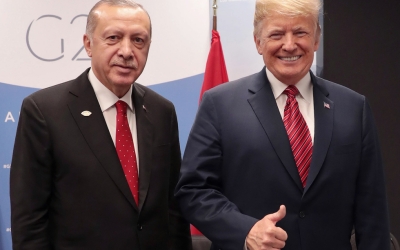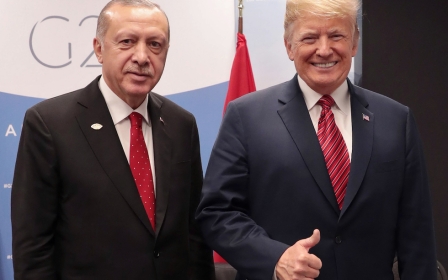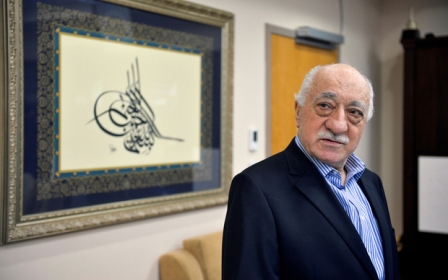US rejects Turkish minister's claim it was behind 2016 coup attempt

The US State Department has rejected a Turkish minister's accusation that Washington was behind a 2016 failed coup that Ankara has blamed on a US-based Muslim cleric, calling it "wholly false".
Interior Minister Suleyman Soylu's accusation was reported in the Hurriyet newspaper on Thursday, at a time when Turkey is seeking improved ties with its Nato ally.
More than 250 people were killed in the attempt to overthrow President Recep Tayyip Erdogan and his government on 15 July 2016, when rogue soldiers commandeered warplanes, helicopters and tanks to seize state institutions.
Ankara has long blamed Fethullah Gulen, a former ally of Erdogan who lives in Pennsylvania, and launched a widespread crackdown on his network, which Ankara refers to by the acronym "Feto". Gulen denies any involvement.
Soylu told Hurriyet the US had managed the coup attempt while Gulen's network carried it out, adding "Europe was enthusiastic about it," reaffirming a view he said he had been expressing since the putsch.
"It is blatantly clear the United States is behind 15 July. It was Feto who carried it out upon their orders," he said.
Soylu had originally appeared on the Turkish TV channel Haber Global on Tuesday, where he had insinuated that there were other actors behind the coup.
Later, doctored footage of the minister from the broadcast was circulated on social media, where he appeared to claim that Gulenists were not part of the coup attempt.
Soylu then clarified his remarks by speaking to Hurriyet.
The US State Department said in a statement on Thursday: "The United States had no involvement in the 2016 attempted coup in Turkey and promptly condemned it.
"Recent assertions to the contrary made by senior Turkish officials are wholly false."
It said "unfounded and irresponsible claims of US responsibility for events in Turkey are inconsistent with Turkey's status as a Nato ally and strategic partner of the United States".
Washington has repeatedly rejected Turkish demands for Gulen's extradition, citing a lack of credible evidence from Ankara.
'Positive agenda'
Ankara is seeking to repair strained ties with Washington, which last year imposed sanctions on Turkey over its purchase of Russian air defence systems, and with the European Union.
The EU has threatened measures against Ankara over a dispute with Greece in the east Mediterranean.
Turkey has said in recent weeks that it achieved a "positive agenda" with the EU, and that it wants to improve relations with the United States under President Joe Biden.
Biden is expected to be tougher on Ankara over its record on human rights, which has worried Turkey's Western allies, Reuters reported.
Since the failed coup, Turkey has detained some 292,000 people over suspected links to Gulen and has suspended or sacked more than 150,000 civil servants.
Hundreds of media outlets have been shut and dozens of opposition lawmakers have been jailed.
The government's response to a month-long protests at one of the country's top universities has also alarmed Washington and the United Nations, with both condemning "homophobic" rhetoric by officials.
Soylu has referred to some protesters as "LGBT deviants" and Erdogan said on Wednesday there was "no such thing" as LGBT, which stands for lesbian, gay, bisexual and transgender.
Middle East Eye propose une couverture et une analyse indépendantes et incomparables du Moyen-Orient, de l’Afrique du Nord et d’autres régions du monde. Pour en savoir plus sur la reprise de ce contenu et les frais qui s’appliquent, veuillez remplir ce formulaire [en anglais]. Pour en savoir plus sur MEE, cliquez ici [en anglais].






